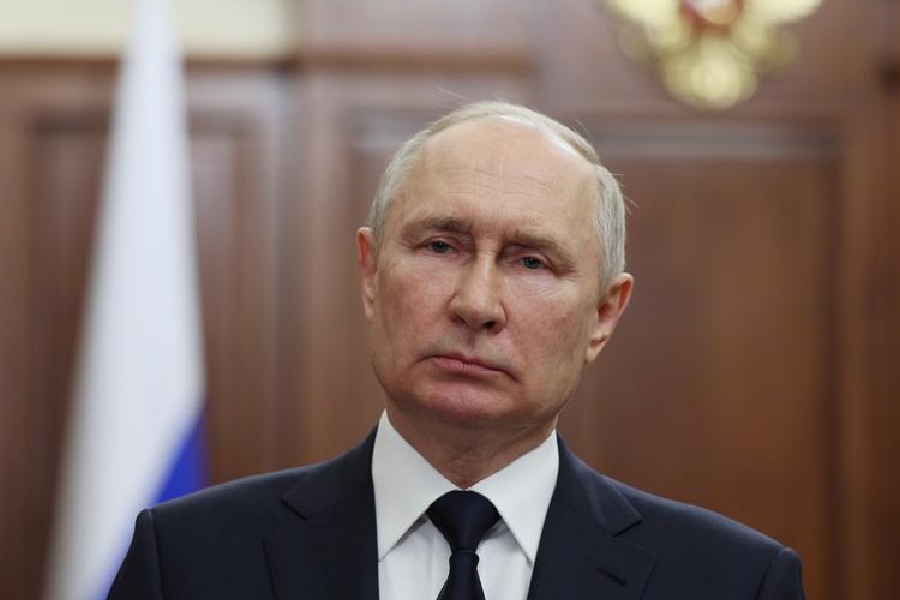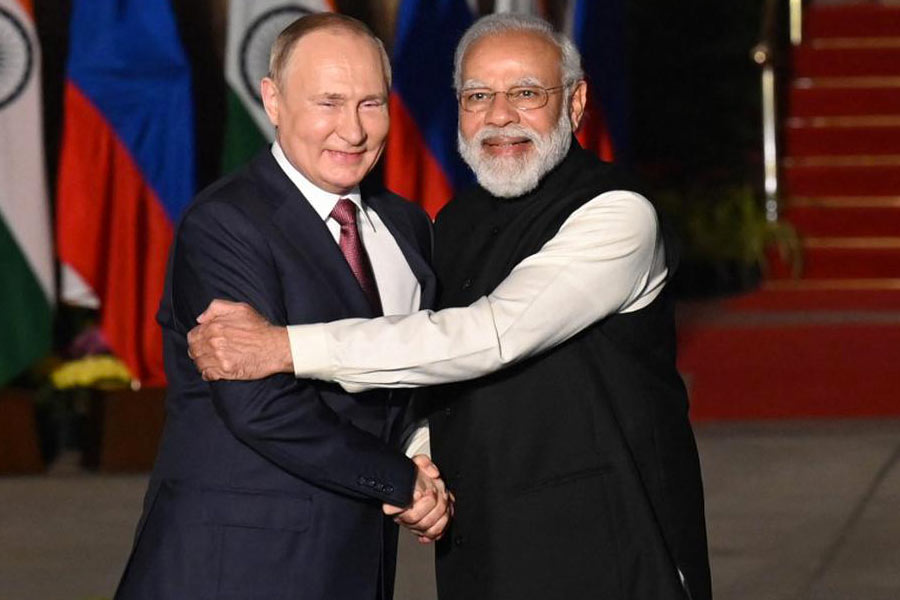For a few crazy hours last weekend, Vladimir Putin's presidency looked like it could be on the brink.
The dramatic revolt by the mercenary Wagner Group culminated in an armored column making its way toward Moscow. As the convoy powered through the country, preparations were made in the capital for imminent conflict.
While a resolution was brokered before the weekend was over, the stunning events have changed the narrative about the stability of Putin's rule.
Now, questions are being raised over what could next threaten his more-than-two-decade control of the country. As in the past, the economy is an important part of the discussion.
Since the invasion of Ukraine in February 2022, the Russian economy has been a primary target of sanctions for Western nations looking to support Ukraine.
However, for much of 2022, European countries continued to buy Russian oil and gas while Moscow found new energy partners in China and India. That drove the country to a record-high trade surplus of $227 billion (€211 billion). Those bulging coffers helped Putin keep money flowing to various sectors and interest groups.
A shield against sanctions
That largess also helped keep anti-Putin sentiment down, according to Chris Weafer, an investment adviser who has worked in the country for 25 years.
"It enabled the government to stabilize the economy and to subsidize areas like the auto sector, which is politically very important because it's a very big employer, particularly in regions of Russia where it might be the only employer," he told DW, referencing large protests that took place in car-producing regions during the financial crisis of 2009.
There are signs that the situation has begun to change this year. Elina Ribakova from the Bruegel think tank, even sees a connection between the economic situation and the recent aborted coup.
She says the revolt led by Yevgeny Prigozhin was as much about access to increasingly limited resources as anything else. "If we would have seen higher oil prices, Putin could have comfortably continued to give handouts to his former cook as well as toward social spending," she said. "Russia's economy at the moment is almost entirely dependent on higher commodity prices."
Energy revenues have undoubtedly been Moscow's primary shield against sanctions and they have given the Kremlin the possibility to fuel its war effort and supplement social spending at home.
Kirill Rogov, a Russian political scientist who founded and heads the policy network Re: Russia, explains how Putin has used the bumper profits to keep various groups on board.
"Most important is the redistribution of income through infrastructure projects and through other economic projects, which involve a lot of people and create economic activity," he told DW. Another key group who gets generous social spending are pensioners, who represent more than one-third of the entire population.
Staking the whole house on oil
Rogov believes that it was high oil prices that convinced Putin he could invade Ukraine in the first place. So if oil prices fall, the natural consequence of this economic dependence would most likely be further political instability in Russia.
"I think that in the case of low oil prices for two years, we can expect a real deterioration in standards of living and after that, protests," Rogov said.
He believes an external shock, which could dramatically lower oil prices, could prove fatal to Putin's presidency. "It will destabilize the system and it will decrease elite belief in Putin's long-term stability and the long-term stability of his regime."
Chris Weafer agrees that the value of monthly oil receipts remains arguably the most influential factor driving decision-making in the Kremlin.
"If those numbers go down, then Putin will not allow the finance ministry to keep burning through the financial reserves because it'll leave them vulnerable geopolitically," he said.
A falling number
And those monthly oil receipts are going down dramatically compared with the 2022 windfall.
Last month, the country's finance minister, Anton Siluanov, admitted that Western sanctions, which have forced Russia to sell oil at a discount to countries like India and China, have started to hit revenues.
According to official figures, energy revenues fell by more than 50% in the first quarter of 2023. "This is now the key problem in the economy," said Weafer. "Come September, we will probably be looking at a budget adjustment to reduce spending. It can't happen in the military, so then you start to reduce spending in the broader economy."
At that briefing, the finance minister claimed that non-energy revenues were "on track." But Elina Ribakova says the reality is that Russia is now a war economy almost entirely dependent on both the war itself and its oil revenues.
"Most of the industrial spending is being boosted by military spending," she said, adding that areas such as agriculture and car manufacturing are struggling.
Could oil burn down the house?
Weafer says conversations about a power shift in the Kremlin have become much more open and public than they were previously, even before the attempted coup. He thinks a change in leadership driven by economic turmoil remains a way off but says that Putin's position is dependent on keeping the elites happy.
He, Ribakova and Rogov all agree that an oil price collapse would prove fatal for Putin although Ribakova is highly skeptical that the system itself would change. "Out of all these various scenarios of a post-Putin Russia, the probability of a democratic and stable Russia is, in my view, very low," she concluded.
Nonetheless, Weafer says, the monthly oil receipts should be watched very closely by all concerned with events in Russia.
"It's like a hang glider," he said. "The bit in the middle is called the 'Jesus bolt' because everything hangs from that in the hang glider. And if that breaks, the next person you're talking to is Jesus."
"Putin's 'Jesus bolt' is the monthly oil flows. That's the critical factor, hanging it all together," Weafer said.











